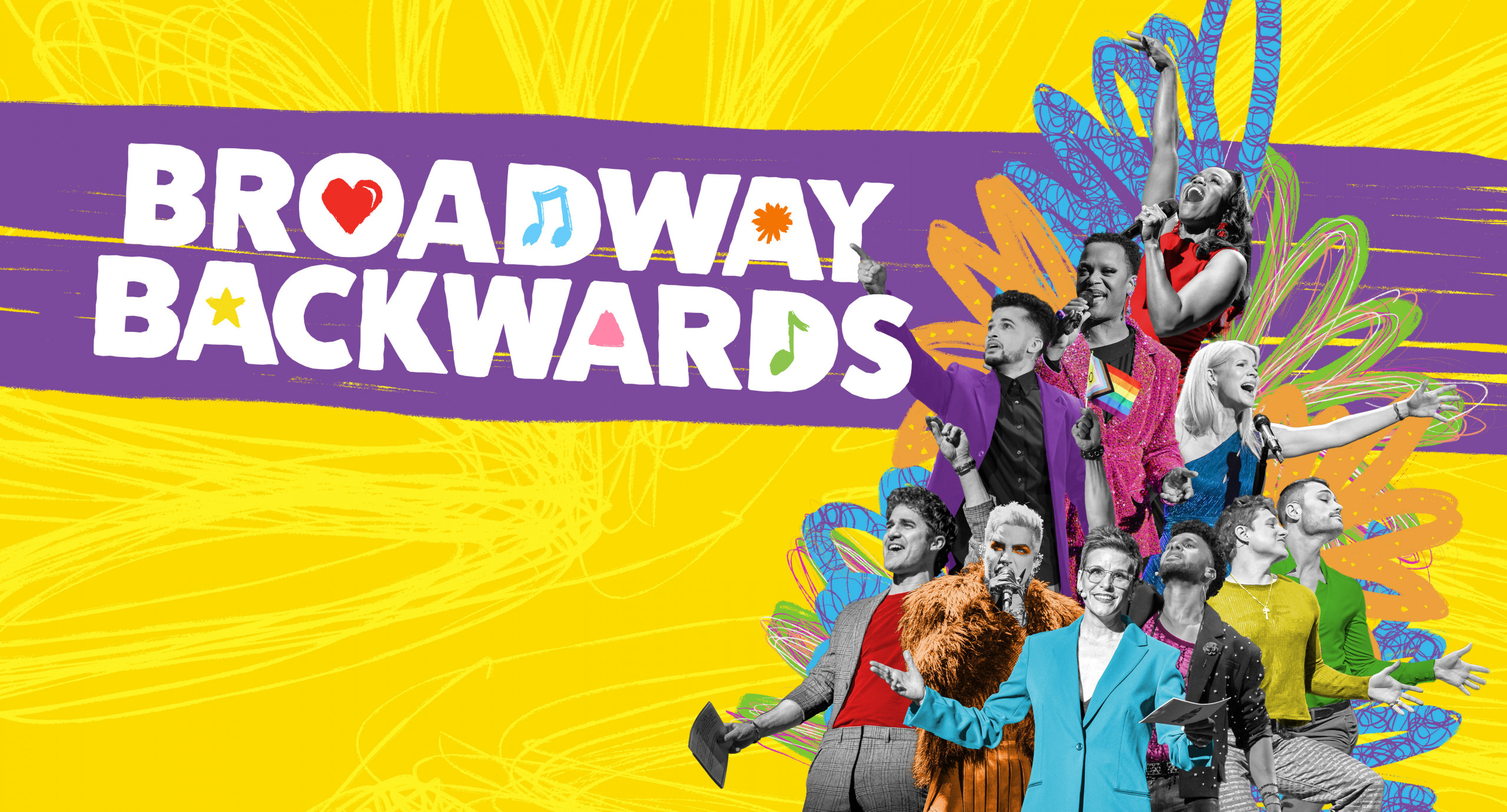
Fred Ebb Legacy Continues To Lift BC/EFA
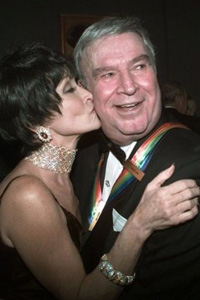
 More than seven years after his death, award-winning lyricist Fred Ebb’s gifts to Broadway reach far beyond his musical theatre genius in shows like Chicago and Cabaret. As a stipulation in his will, Ebb generously left Broadway Cares/Equity Fights AIDS his share of his works’ royalties – a donation that in 2011 totaled $1.2 million dollars, the largest single gift in BC/EFA history.
More than seven years after his death, award-winning lyricist Fred Ebb’s gifts to Broadway reach far beyond his musical theatre genius in shows like Chicago and Cabaret. As a stipulation in his will, Ebb generously left Broadway Cares/Equity Fights AIDS his share of his works’ royalties – a donation that in 2011 totaled $1.2 million dollars, the largest single gift in BC/EFA history.
The annual donation enables Broadway Cares, especially during these tenuous economic times, to continue funding the essential programs of The Actors Fund, including the HIV/AIDS Initiative, the Phyllis Newman Women’s Health Initiative and the Al Hirschfeld Free Health Clinic. The donation also helps Broadway Cares continue its important work of offering grants to more than 400 AIDS and family service organizations across the country. Every dollar helps provide a much needed medical treatment, a warm meal, a comfortable bed to sleep in and so much more.
“Fred Ebb was as passionate and generous as he was gifted and brilliantly creative,” BC/EFA Executive Director Tom Viola said. “With John Kander, Fred gave us some of the most delightful and groundbreaking musicals of the last 40 years. Now, he has given us all another remarkable gift.”
Ebb requested that at the end of each year, royalties earned on his collection of works would be distributed to BC/EFA through the Fred Ebb Foundation.
In 2005, Mitchell Bernard, Ebb’s nephew and executor, presented BC/EFA with the first “royalty check” for $300,000. Subsequently, BC/EFA has been grateful to receive gifts of $550,000 in 2006, $950,000 in 2007, $800,000 in 2008, $850,000 in 2009 and $1,000,000 in 2010.
The grand total from the Fred Ebb Foundation so far is $5,650,000.
“It was Fred’s wish that BC/EFA use this money to expand our support for those he so loved – his friends and colleagues in the theatre community,” Viola said. “Fred’s light shines on every person who is touched and assisted by the services his unique talents and creative energy make possible today and for years to come.”
Ebb’s long-lasting gift doesn’t surprise those who worked closely with him.
“Freddy was one of the most generous people I have ever known,” said legend Chita Rivera, who has performed in three Kander and Ebb musicals on Broadway and won both her Tony Awards portraying Kander and Ebb characters. “He was generous with his time, knowledge and as you see a most important organization, which meant so much to him, BC/EFA. His foundation represents Fred Ebb truly as a kind, generous person.”
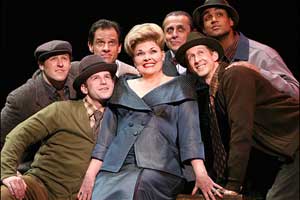
 Debra Monk’s two Tony Award nominations both came from performances in Kander and Ebb musicals,Curtains and Steel Pier.
Debra Monk’s two Tony Award nominations both came from performances in Kander and Ebb musicals,Curtains and Steel Pier.
“It doesn’t surprise me at all that Freddy would leave such an amazing gift through his foundation,” Monk said. “It just makes sense since he was such a generous spirit. He always wanted to help people in whatever they needed.”
In addition to supporting BC/EFA, the foundation gives The Fred Ebb Award, a $50,000 annual gift to “recognize excellence in musical theatre songwriting by a lyricist, composer or songwriting team that has not yet achieved significant commercial success.” The aim of the honor is to encourage and support new musical theatre works. The Fred Ebb Award has been presented to Jeff Blumenkrantz, John Bucchino, Steve Lutvak and Robert L. Freedman, Peter Mills, Adam Gwon, Marcy Heisler and Zina Goldrich, and Douglas J. Cohen. The Foundation presents the award in association with Roundabout Theatre Company.
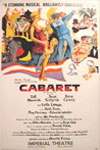
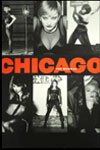
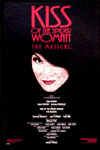
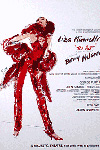
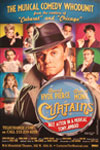
A Musical Legacy
Fred Ebb died unexpectedly of a heart attack in his Manhattan home on September 11, 2004.
Ebb was introduced to composer John Kander in 1964 by music publisher Tommy Valando. The pair became one of the most legendary songwriting teams in American history. They gave the world some of the great creations of the American musical stage: Cabaret, Chicago, Kiss of the Spider Woman, Woman of the Yearand nearly a dozen more, ranging from The Act to Zorba.
The first successful collaboration was on the song “My Coloring Book,” recorded by Barbra Streisand. Their second theatrical collaboration, Flora, the Red Menace, introduced and created a star out of 19-year-old Liza Minnelli in her Tony Award-winning Broadway debut.
Ebb developed a particularly close relationship with Liza, for whom he regularly wrote songs for the stage and television.
In Kander and Ebb’s 2004 memoir Colored Lights, Liza writes about the first time she met the songwriting team:
“Freddy opened the door and said, ’Hi.’ That welcome was the beginning of my career, the beginning of my world and the beginning of my life as a performer. John and Fred made everything possible. I was like a person in the desert looking for a glass of water and finding a well. They gave voice to everything that I felt.”
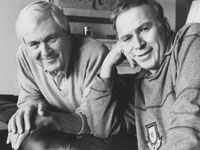

For nearly 40 years, the theatre maestros created some of the finest, most successful musical entertainment and worked with a bevy of stars including Chita Rivera, Lauren Bacall, Bob Fosse, Robert Goulet, Joel Grey, Shirley MacLaine, Frank Sinatra and Gwen Verdon.
Since his death, two additional works he started with Kander have made their way to Broadway. In 2009, David Hyde Pierce won the Best Actor in a Musical Tony Award for his role in Curtains. And, following a critically acclaimed off-Broadway run, The Scottsboro Boys opened at Broadway’s Lyceum Theatre in 2010 and garnered 12 Tony Award nominations.
“They just had such a joy and passion for the craft of making theatre and Freddy was an indomitable spirit,” Monk said. “I’ve never worked with anyone like Fred and John before or since. They loved the process – the rehearsals, the workshops, the rewrites – and they worked all the time, meeting every week up until the time Freddy was too sick to work. It’s so sad that he isn’t here to enjoy the some of his biggest success. He is sorely missed by everyone.”
During Ebb’s lifetime, he and Kander helped raise a significant amount of money for BC/EFA, through collections at their shows and various other fundraising events.
“If he was in town, Fred always called for seats to The Gypsy of the Year and The Easter Bonnet Competitionand seemed particularly happy when he was asked to join the panel of judges for the 1998 Easter Bonnet,” Viola said. “One always had the sense that while Fred loved the zaniness of BC/EFA events, he also instinctually understood how that supported essential social services for people in crisis, particularly those in the theatre community – his best friends and beloved colleagues.”

